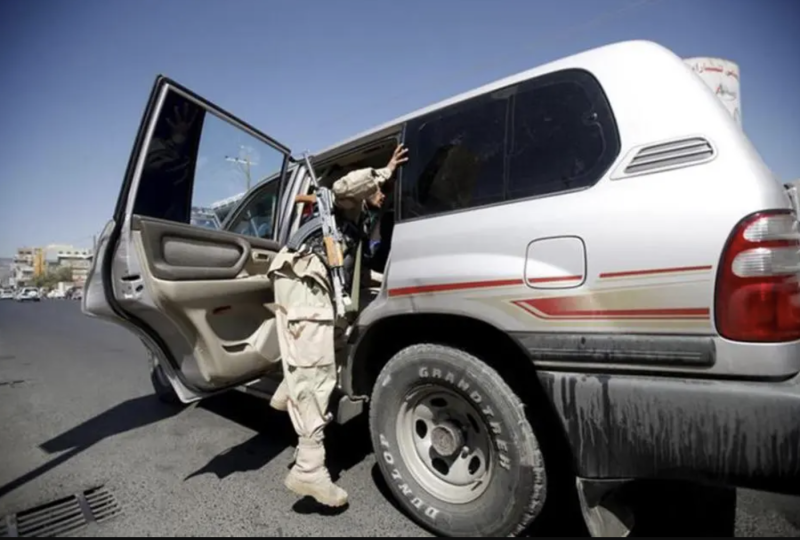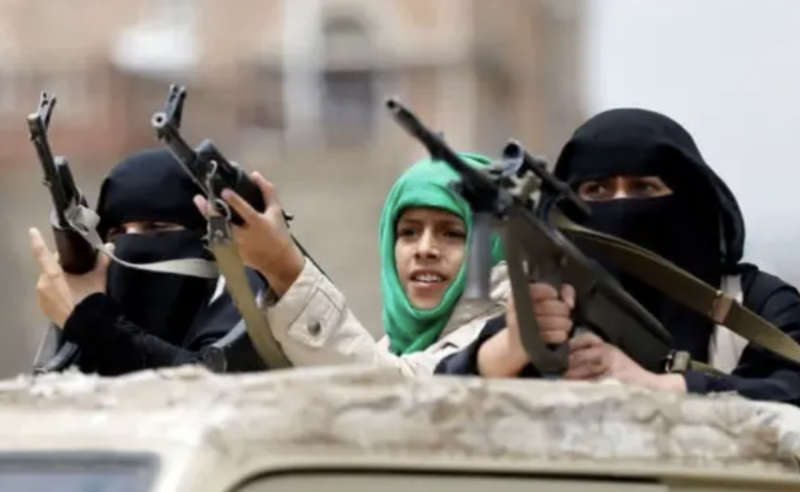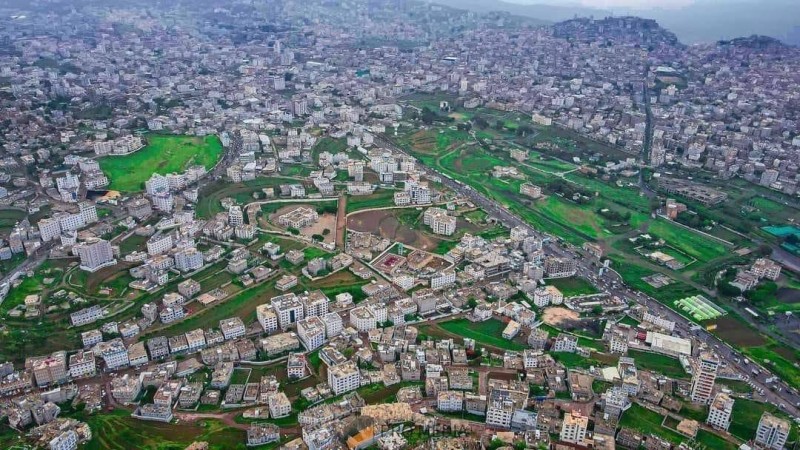Houthis recruited 30,000 child soldiers, says Yemeni minister


The Houthi rebels in Yemen have recruited at least 30,000 child soldiers to bolster their ranks in the country's five-year war, a senior Yemeni official said on Tuesday, warning of the dire consequences the issue could have on the country’s future.
“There is at least 30,000 child recruits with the Houthis today,” Mohamad Askar , the Yemeni minister for Human rights told The National in an interview. He also estimated 320 women detainees held by the rebel group. His numbers are based on human intelligence and reports by witnesses who fled the Houthi-controlled areas.
Mr Askar said he is emphasising the child soldiers issue in his meetings with the Americans “because they [US Government] has to understand its severity…there is a new generation of terrorists in Yemen while the US is only focused on ISIS and Al-Qaeda.”
“One form of extremism emboldens another,” he added.
When asked about child soldiers that his government is accused of recruiting, he pushed back by saying that the numbers pale in comparison to those of the Houthis.
“Al Qaeda recruits children, some government groups also recruit children but these numbers are in the few hundreds,” Mr Askar said. “We are talking about 30,000 children with the Houthis, while the Yemeni government signed a UN action plan to end child recruitment.”
An investigation by the Associated Press last year found “the Houthis have inducted 18,000 child soldiers into their rebel army since the beginning of the war in 2014.” This was acknowledged by a senior Houthi military official to AP. But with losses on the Western coast of Yemen, and the war in its sixth year, the Houthis have now almost doubled that number, Mr Askar argued.
The other two issues he highlighted in his talks with US officials and non-governmental organisations were landmines and the detainees. The US government is trying to put pressure on all parties in Yemen to enforce confidence-building measures that would see movement on these issues.
But Mr Askar said “there is a wrong message and signal coming from Washington, and the pressure is seen on one side only: the government.”
“The Houthis feel emboldened by the rhetoric from US congress,” he said.
Still, Mr Askar said his government wants a political solution, and is not planning for a military campaign to takeover the capital, Sanaa. “Sanaa has to be restored with reconciliation,” he said.
When addressing Iran’s role, Mr Askar made sure to make a distinction between the Houthis and the Lebanese armed group Hezbollah. “Hezbollah is Iran’s baby with his Secretary General assuming both political and religious roles…In Yemen, we have Zaydis who are ideologically different…and where the sectarianism is not as deep.” He said the Houthis' convergence with Iran is about funding and political interests.
Mr Askar called the Yemen war the “biggest humanitarian crisis” in today’s world and warned of many sides benefiting from the war economy and corruption. He voiced concern that if the war drags on, and “if we don’t achieve real peace and resolving Yemen’s issues including the Southern issue, then we may go to fragmentation…and it won’t stop at Yemen.” He voiced some sense of optimism about the negotiations, both with Southerners and potentially with the Houthis.
A senior US official told The National that Washington is already talking to the Houthis, and there are efforts by Washington to start talks between Saudi Arabia and the Yemeni group.
A US spokesperson said “our goal in Yemen remains consistent: to work with our international partners to bring peace, prosperity, and security to a unified Yemen”.
Stephen Seche, a former US ambassador to Yemen and the executive vice president of the Arab Gulf States Institute in Washington, saw the conflict at a critical juncture between continued war or capitalising on opportunity for peace.
“The drawdown of UAE forces from Yemen earlier this year revealed deep fissures among ostensible coalition partners in south Yemen and, at the same time, emboldened Houthi rebels to increase military pressure on Saudi Arabia,” Mr Seche said.
“These developments, combined with heightened concerns in the region regarding the threat posed by Iran, have altered the strategic calculations of all parties to the conflict, and delivered an opportunity for a negotiated end to the war.”
A Saudi-led Arab Coalition, which includes the UAE, has been supporting the legitimate government of Yemeni President Abdrabu Mansour Hadi since the Houthis took the capital Sanaa in 2015.
Mr Seche said the ball is now with “the leadership in Saudi Arabia and that of the Houthi rebels to demonstrate maturity and genuine concern for the well-being of the civilian population of Yemen.”
“We must all be deeply concerned about the future of Yemen if the parties fail to seize this opportunity for peace,” Mr Seche warned.

Aden -- Human Rights Watch (HRW) has issued a new report documenting a wave of arbitrary detentions carried out by Houthi authorities in Yemen in r…

Sana'a -- The Yemeni Network for Rights and Freedoms has revealed alarming figures documenting 1,654 violations committed by the Zainabiyat, the al…

Ibb — A tragic incident has shaken the city of Ibb after the death of a young boy, Laith Mohammed Abdu, inside Al-Thawra General Hospital, wh…